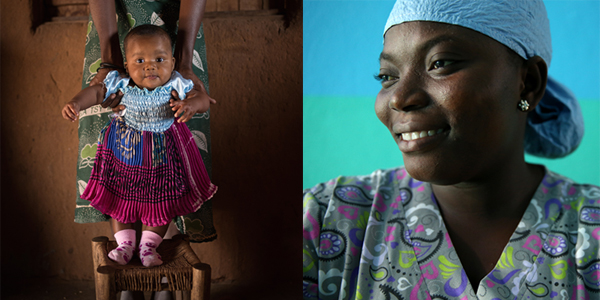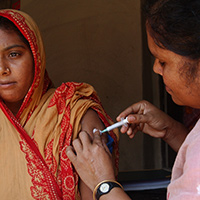This short training video is intended for women who have made the decision to self-inject subcutaneous DMPA (DMPA-SC) in the context of informed choice counseling. DMPA-SC is a lower-dose, easy-to-use injectable contraceptive that is administered every three months. The product’s user-friendly design means that any trained person can administer it, including community health workers, pharmacists, and even women themselves.
Resources

Updated Community Health Systems (CHS) Catalog »
The CHS Catalog draws from policies and related documentation across 25 countries with specific attention to family planning. It is intended for policymakers, program managers, researchers, and donors interested in learning more about the current state of community health systems.

Dashboard on Youth Sexual & Reproductive Health »
The tool provides views of indicators related to the sexual & reproductive health of people ages 10 to 24 years in select countries in Asia and the Middle East.

Develop an Injectable Contraceptives Strategy »
Use this resource to craft a strategy for building support for community-based access to injectables (CBA2I) among key decision makers in country.
Search for a Resource


DMPA-SC is an all-in-one injectable contraceptive that combines the drug and needle in the Uniject™ injection system. DMPA-SC is a low dose formulation of progestin-only contraceptive and contains 104mg of DMPA per 0.65ml dose. DMPA-SC is administered via subcutaneous injection (similar to insulin injections) and lasts three (3) months.

The purpose of this activity was to generate experience from a DMPA-SC self-injection pilot in the private sector to inform country and global learning, and to provide the Zambian MOH with operational recommendations for policy and program planning.

APC provided technical, financial, and logistical support for systems implementation, training, supportive supervision and mentoring, and data quality improvement and information use. The project developed and implemented data systems, built capacity within the health workforce to use and maintain data, and connected health facilities with networking equipment.

The APC project in Tanzania has provided technical and financial support to the Family Planning Unit of the Reproductive and Child Health Section of the Ministry of Health, Community Development, Gender, Elderly, and Children since 2014.
From September 2013 to September 2019, JSI Research & Training Institute, Inc. implemented the USAID-funded APC Guyana HIV/AIDS Reduction and Prevention Project. The project design included innovative, evidence-based, and cost-effective solutions, tailored to meet the needs of populations at risk of HIV in Guyana, in the contexts where programs are implemented, and where individuals reside.
Download the infographic to learn more about APC's Health Management Information System (HMIS) Scale-up Project in Ethiopia. From 2014 to 2019, APC contributed to the development of the health information system by supporting systems development, capacity building, and networking in all regions of the country and within the Federal Ministry of Health.
Entre septembre 2012 et avril 2019, le projet Advancing Partners & Communities (APC) financé par l’USAID et mis en œuvre par JSI Research & Training Institute, Inc. et FHI 360, a soutenu des programmes de santé communautaire au Bénin, principalement dans les 10 zones sanitaires de l’USAID et au niveau national.
Explore the story and lessons learned from the PHE project, Integrating Health and Family Planning into Greater Amanzule Wetland (GAW) Landscape Conservation and Small Scale Fisheries Management in the Western Region of Ghana.
Are you working on implementing CBA2I programs? Check out an implementation handbook developed by FHI 360, which is a step-by-step guide for introducing injectable contraceptives into an existing community-based distribution program. Along with three additional resources, a community health workers job aid booklet, a counseling tool, and a user guide that APC contributed to which are tools that can be adapted for country-specific needs.
- ‹ previous
- 2 of 27
- next ›
